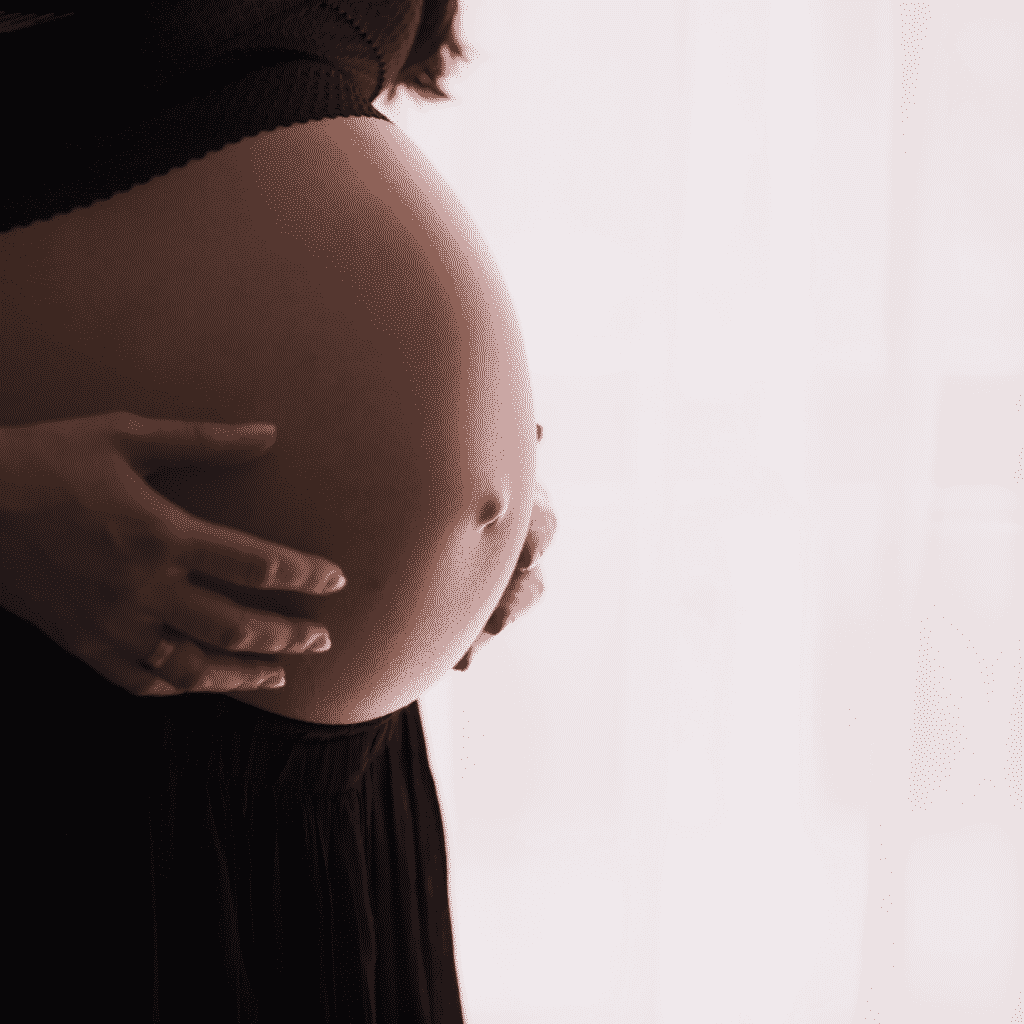Once a woman becomes pregnant, her body begins to undergo several changes.

Sadly, it’s normal to experience some level of pain as these changes occur. Pregnant women often feel pain in almost all parts of their body at one point or another; from the lower back to their breast, and even to the abdomen.
In addition, pain in the cervix is also common. This pain usually begins in the second trimester and lasts until delivery.
What are the possible causes, symptoms, and treatments of pain in the cervix during pregnancy?
Read on to find out.

Causes of Cervical Pain During Pregnancy
Here are some possible reasons why a pregnant woman may experience pain in the cervix:
1. Enlargement of the uterus
The size of the uterus increases dramatically during pregnancy in order to accommodate the growing fetus. This massive uterine growth causes increased pressure on the vagina and surrounding muscles.

Also, your pelvic ligaments will have to be stretched to accommodate the extra weight as your baby grows. Sometimes, this may lead to overstretching which will be felt as a sharp, shooting pain. This pain is called “lightening pain”, and it can be so startling that some women think that they are actually in labor.
However, this is usually a false alarm, and you do not have to worry about labor yet.
2. Fluctuating Hormones
Pregnancy is a time when your hormones are all over the place, and changing from time to time. These changes may also affect your vagina, causing it to be excessively dry.
This dryness can cause pain, especially during sex.
3. Cervical Dilation
Cervical dilation simply means that your cervix is opening, usually in preparation for childbirth. Sometimes, this dilation may cause sharp, shooting pain, especially as you approach your due date.

However, there is no actual need to worry as this is your body’s natural way of preparing for labor and childbirth. Nevertheless, if the pain gets severe or you have regular contractions or fluid leakage, consult your doctor immediately.
4. Increased Blood Volume
Your blood volume increases during pregnancy due to increased levels of pregnancy hormones. This is usually accompanied by increased blood flow to the vagina which may cause you some discomfort or pain.
5. Ectopic Pregnancy
This is a pregnancy where the fetus attaches to anywhere else other than the wall of the uterus, commonly in the Fallopian tube. In most cases, the pregnancy cannot be carried to term as the growing baby usually does not survive anywhere outside the uterus.
Although rare, a woman would most likely experience pain if the growing fetus is attached to the cervix. In some cases, an ectopic pregnancy will rupture whatever site it is attached to, causing cervical and abdominal pain, vaginal bleeding, lightheadedness, nausea, e.t.c.
You should consult your doctor immediately if you think you may be having an ectopic pregnancy.
6. Pelvic Organ Prolapse (POP)
Pelvic organ prolapse is a medical condition during pregnancy where certain internal organs move down towards the vagina or rectum.
Most women describe it as feeling as if something is pushing down on the vagina. An organ prolapse increases the pressure in the vagina and may cause complications and intense pain.
Thankfully, this condition can be treated, so consult your doctor if you feel intense vaginal pressure, pain, or develop bowel problems.
How To Cope With Cervical Pain During Pregnancy
Most pregnant women will have to deal with pain in the cervix at some point in their pregnancy. Your doctor will likely recommend pain medications to manage the pain.

Asides from that, there are a few things you can do to bring yourself some much-needed relief:
- Try to lie down on your left side more, with your hips elevated if possible. This will help improve blood circulation and relieve cervical or vaginal pressure.
- Sitting with your feet elevated will also help reduce vaginal and cervical pressure and in turn, pain.
- You can try the old age remedy; warm baths. They have been proven to work like magic and they help soothe and relax all your achy muscles.
- Engaging in light physical activities is also another great way to alleviate vaginal pain. You can try yoga, swimming, walking, or Kegel exercises for at least 30 minutes a day. This will help improve blood circulation, strengthen your muscles and most importantly, relive pain.
- A pelvic massage is also another great remedy for managing cervical pain. Ensure to seek the medical advice and services of a trained professional before getting a massage.
- A pregnancy support belt will be very helpful in relieving pressure as well.
When to See a Doctor
Pain in your cervix can be very uncomfortable, even though it is a common problem among pregnant women.
Although the tips listed in this article may help relieve your pain, speak with your health care provider if you feel the pain getting worse, about any other questions or concerns you have, or to get medications to help relive your pain.
REFERENCES
- Flack NA, Hay-Smith EJ, Stringer MD, Gray AR, Woodley SJ. Adherence, tolerance and effectiveness of two different pelvic support belts as a treatment for pregnancy-related symphyseal pain – a pilot randomized trial. BMC Pregnancy Childbirth. 2015;15:36.
- Pennick V, Liddle SD. Interventions for preventing and treating pelvic and back pain in pregnancy. Cochrane Database Syst Rev. 2013;8:CD001139.
- Depledge J, Mcnair PJ, Keal-Smith C, Williams M. Management of symphysis pubis dysfunction during pregnancy using exercise and pelvic support belts. Phys Ther. 2005;85(12):1290-300.
- Shutterstock

